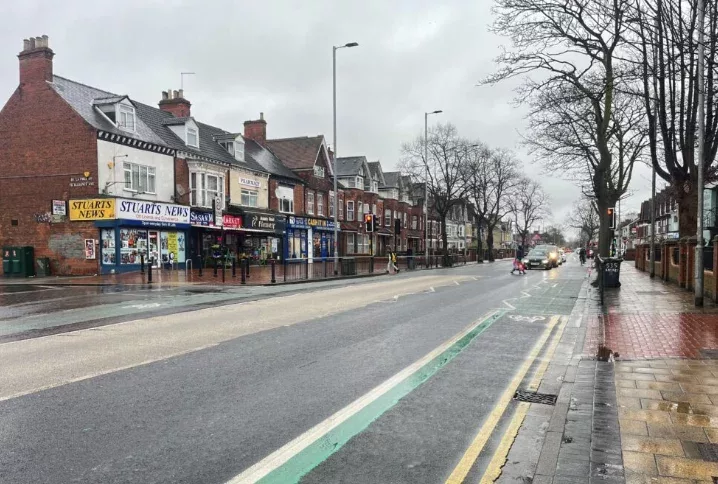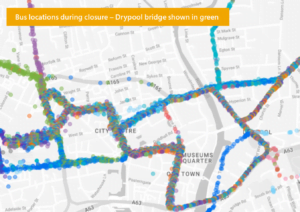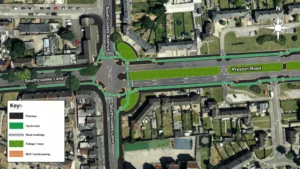Hull City Council has bolstered its efforts to reduce congestion and improve traffic management through the trial use of Artificial Intelligence (AI) technology.
Following an initial AI-powered traffic management trial in Hull – conducted in collaboration with Huddersfield-based AI pioneers Simplifai Systems – Hull City Council have proudly shared encouraging data which shows a significant reduction in traffic congestion during peak hours.
The system, which uses AI to adjust traffic light timings to help alleviate congestion hot spots to improve traffic flow, safety, and sustainability within the city, was funded by the DfT.
The system collects information from various data sources over several months leading up to the live trial on Anlaby Road between Hull Royal Infirmary and De La Pole Avenue.
The pre-trial information was collected between Monday 27 November and Friday 1 December 2023, which estimated that AI traffic management could reduce the average journey times during peak hours by 19%. Following this successful real-time data collection, the trial went live on Anlaby Road between Monday 19 February and Sunday 25 February 2024. Results gathered showed that over the week – compared to the typical week in November – journey times reduced on average in the AM peak by approximately 16.9% and by approximately 8% in the PM peak.
When converted to hours in delay, this showed a reduction of nearly 65 hours of congestion in the AM and 23 hours in the PM.
By using a base calculation of £12 per hour for economic value purposes, this totals a staggering £180k that has been added back into the local area, due to vehicles travelling through the corridor to their end destinations more efficiently.
Sean Higgins, Intelligent Transport System Manager at Hull City Council, said: “As we move forward, we envision a city where AI-driven traffic management becomes an integral part of our urban infrastructure. The lessons learned from this initial trial will inform our decisions as we plan for further implementation of the system across Hull.
“The success of this trial exemplifies our commitment to innovation and sustainable urban development. We look forward to expanding these solutions for the benefit of all residents.”
Keith McCabe, CEO of Simplifai Systems, said: “The ultimate goal is to come up with new traffic signal timings when the network is at its busiest. The new approach to traffic control really centres on how to achieve a particular goal and in Hull that goal was to reduce the journey time and make that more reliable. I think the evidence shows that was successfully achieved.”
Councillor Mark Ieronimo, Portfolio Holder for Transportation, Roads and Highways described the integration of AI into traffic management as a “game-changer”, placing Hull at the forefront of innovation. Although the Simplifai Systems solution implemented in Hull was not designed specifically for the City, McCabe praised the Council’s future-focused approach.
“What makes this Hull-specific is their outlook towards innovation. They want to be seen as being an innovative Council and they helped and supported the whole process and brought together a range of different contractors, including ourselves providing the artificial intelligence, but also a whole host of other things. Yunex provided access to the traffic control data, Clearview provided access to INRIX data, and we also use the government’s bus open data to understand the position of buses and how they move around cities. So in that sense, it’s the collaboration that really made this work. This can now be replicated anywhere in the UK and we are taking this forward with other cities as well as other local authorities and would like to widen the amount of organisations that have access to this.”
(Picture – Hull City Council)





















